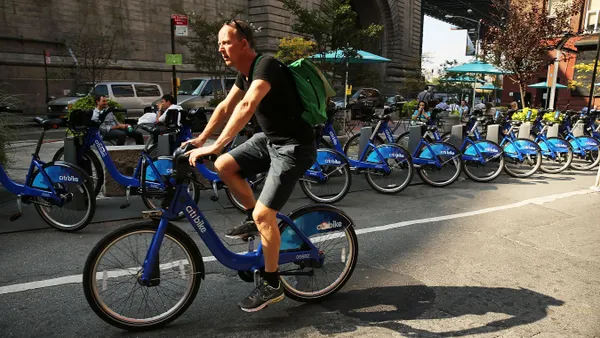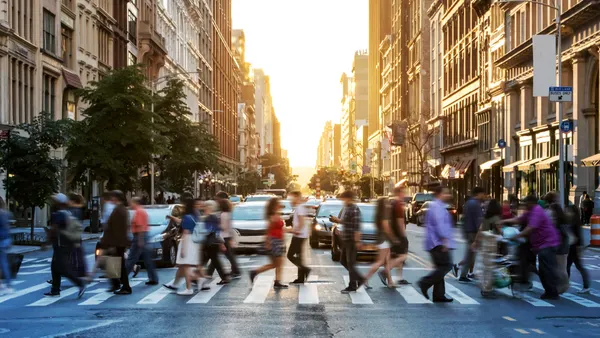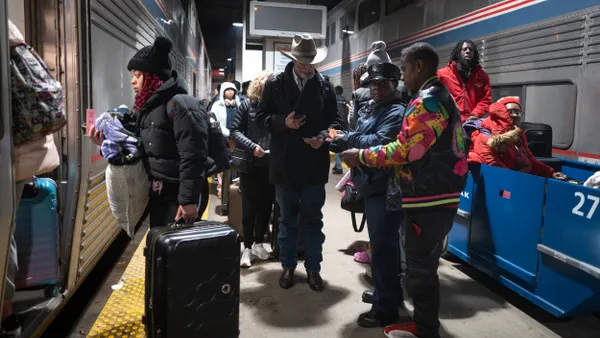Dive Brief:
- Massachusetts Governor Charlie Baker has established the Commission on the Future of Transportation, which will predict the transportation needs and challenges expected to face the state between 2020 and 2040.
- The 18-appointee commission will focus on the five key areas of electric transportation, climate and resiliency, transit and mobility services, land use and demographic trends and autonomous and connected vehicles, which includes ride-sharing.
- Member analysis and recommendations will be presented in a report by Dec. 1.
Dive Insight:
Baker's administration announced that this commission would be formed in September, following the Massachusetts Taxpayers Foundation's release of a high-profile report that was critical of the state's lack of a transportation infrastructure and financing blueprint. That same week, the state senate released results of a 700-resident survey that showed widespread dissatisfaction with transportation in Massachusetts.
The creation of this commission goes along with the growing trend of devising comprehensive plans before a municipality or state implements innovations. With technology and concepts — such as electric vehicles, autonomous vehicles and ride-sharing — changing at a breakneck pace, the temptation can be to add new features based on a "wow" factor. But laying out a roadmap first prevents the misdirection of taxpayer funds.
Two interesting points about the new commission are that it focuses solely on the future of transportation instead of its current state, and also that it has a wide scope. Instead of just focusing on one aspect of future transportation, such as technology, the group will also tackle topics such as climate impacts, land use and regional demographics.
Massachusetts is keenly tuned in to climate change for a variety of reasons, not the least of which is the fact that much of the state's area lies along a coastline. That makes it particularly vulnerable to rising sea levels. In fact, earlier this month Boston and surrounding areas experienced flooding during a huge snowstorm. The mayor noted that many of the areas that flooded weren't considered flood zones 30 years ago.
Rising sea levels alone could play a role in how the state addresses transportation. Commission appointees may factor in additional protections for roadways and infrastructure from the effects of not just flood waters, but the corrosive salt water coming ashore. Land use also must be considered because adding transportation infrastructure in high-risk flood zones might not be practical.
Another effect of climate change is extreme storms and temperature swings, which much of the country has experienced this winter. The extreme cold and snow add to the already significant winter weather Massachusetts experiences. These environmental factors also must be examined when considering the best transportation infrastructure and mobility options for the future.
Along the lines of climate change is attention to reducing emissions. One of the commission's focus areas is the future of electric vehicles in Massachusetts, both at the individual and public transit level. That will likely include looking at electric buses and potential upgrades to Boston's aging subway system.










